NCERT Solution For EVS Class 4 Chapter 24 – Home and Abroad
Class 4 EVS Chapter 24 gives a comparative view of Abu Dhabi and Kerala with respect to food, clothes, weather, vegetation, and lifestyle. NCERT Class 4 EVS Home and Abroad encourages the kids to identify Indian and foreign currencies.
Download PDF For NCERT Solutions for EVS Home and Abroad
The NCERT Solution For EVS Class 4 Chapter 24 – Home and Abroad are tailored to help the students master the concepts that are key to success in their classrooms. The solutions given in the PDF are developed by experts and correlate with the CBSE syllabus of 2023-2024. These solutions provide thorough explanations with a step-by-step approach to solving problems. Students can easily get a hold of the subject and learn the basics with a deeper understanding. Additionally, they can practice better, be confident, and perform well in their examinations with the support of this PDF.
Download PDF
Access Answers to NCERT Solution For EVS Class 4 Chapter 24 – Home and Abroad
Students can access the NCERT Solution For EVS Class 4 Chapter 24 – Home and Abroad. Curated by experts according to the CBSE syllabus for 2023–2024, these step-by-step solutions make EVS much easier to understand and learn for the students. These solutions can be used in practice by students to attain skills in solving problems, reinforce important learning objectives, and be well-prepared for tests.
Home and Abroad
Do you think that two notes can have the same number?
I have found that two notes cannot have the same number.
Whose picture can you see on the notes?
I can see Mahatma Gandhi’s picture on the notes.
Why do you think many trees cannot grow in desert areas?
In desert areas, many trees cannot grow because trees need a sufficient amount of water for their growth, which is not available in deserts.
Do you have any relatives who live in another country?
Yes, my maternal uncle lives in Australia.
[Students should mention their experience based on the above lines.]
How long have they lived there? Did they go there for studies or for work? Was there any other reason?
He has been living there for 20 years. He went there for studies, and after finishing his education, he got a lucrative job there. So, he did not come back and started living there permanently.
[Students should mention their experience based on the above lines.]
To which country does this currency belong? How did you know?
The given currency notes belong to India. I knew it because the Reserve Bank of India in writing is printed on the notes.
Take a ten rupee note and observe it carefully. How many languages can you see on the note?
I can see fifteen different languages on the note.
Can you find any number on the notes (other than the value)?
Yes, I can see the serial numbers on the notes.
Write the name of the bank given on the note.
The bank’s name given on the notes is the Reserve Bank of India.
You can also make a small report comparing Abu Dhabi with the place where you live. You can use some of these points mentioned below while writing the report. You can also draw pictures or put photographs.
• The climate and weather
• What people wear
• The trees and plants
• The kind of buildings
• The traffic on the roads (kinds of vehicles)
• The common food items
• The languag
I live in the state of West Bengal in India.
The differences between West Bengal and Abu Dhabi according to the points given above are—
| Abu Dhabi | West Bengal | |
|---|---|---|
| The climate and weather | Abu Dhabi has a hot and humid climate throughout the year. | West Bengal has a tropical climate in the southern part and a humid subtropical climate in the north. |
| What people wear | Men in Abu Dhabi commonly wear | People of West Bengal commonly |
| kandura and agal; women wear burqa and hijab. | wear panjabi, pyjama, shirts, pants and saree. | |
| The trees and plants | Only date palm trees grow in Abu Dhabi | Trees such as mango, guava, neem, tulsi, etc., grow in West Bengal. |
| The kind of buildings | High rise buildings are seen in Abu Dhabi. | Thatched houses to tall buildings, all can be seen in West Bengal. |
| The traffic on the roads (kinds of vehicles) | Mostly expensive cars are seen on the roads of Abu Dhabi. | Cycles, cars and bikes, scooters, public vehicles ply on the roads of West Bengal. |
| The common food items | The common foods items in Abu Dhabi are madrouba, dajaj salona, harees, dates | The common food items in West Bengal are rice, fish curry, luchi, rasgulla, etc. |
| The language | The people of Abu Dhabi speak Arabic and English. | The people of West Bengal speak mostly Bengali, along with Hindi and English. |
[Students should mention their experience based on the above lines.]
Look at these currency notes Write the value of each note in the box near its picture.








Talk about it
.
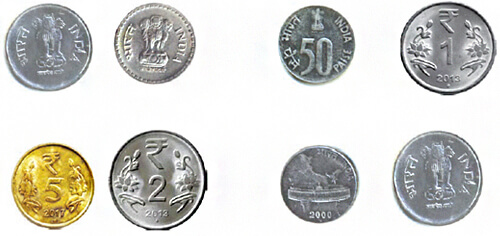
.
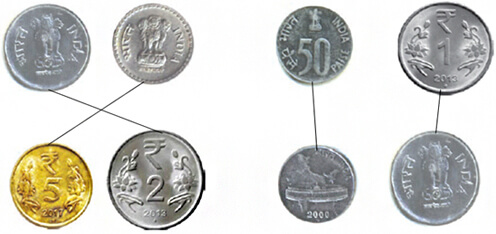
What is written on each coin other than the value?
Other than the value, the name of our country India and the year in which the coin was manufactured is written.
How many of these coins do you recognise?
I can recognise all the coins in the picture —fifty paisa coins, one-rupee coin, two-rupee coin, five-rupee coin.
Look at these notes. Do they all belong to India? Put a circle around notes that are not Indian. Find out which country do they belong to.
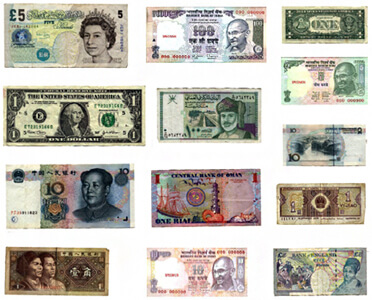
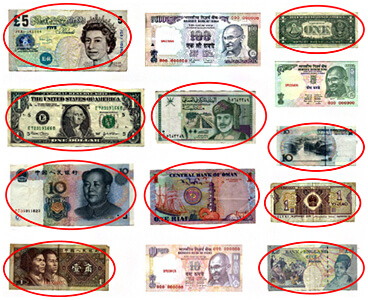
In the above picture, the notes which are not circled belong to India. The circled notes belong to—

England

The United States of America
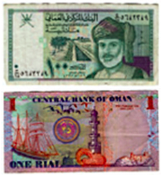
Oman

China
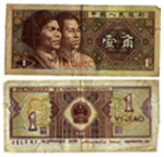
China
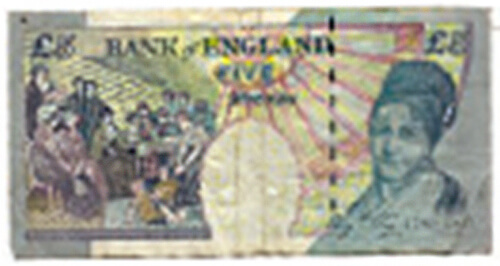
Admissions Open for 2025-26
Frequently Asked Questions
The NCERT solution for Class 4 Chapter 24: Home and Abroad is important as it provides a structured approach to learning, ensuring that students develop a strong understanding of foundational concepts early in their academic journey. By mastering these basics, students can build confidence and readiness for tackling more difficult concepts in their further education.
Yes, the NCERT solution for Class 4 Chapter 24: Home and Abroad is quite useful for students in preparing for their exams. The solutions are simple, clear, and concise allowing students to understand them better. They can solve the practice questions and exercises that allow them to get exam-ready in no time.
You can get all the NCERT solutions for Class 4 EVS Chapter 24 from the official website of the Orchids International School. These solutions are tailored by subject matter experts and are very easy to understand.
Yes, students must practice all the questions provided in the NCERT solution for Class 4 EVS Chapter 24: Home and Abroad as it will help them gain a comprehensive understanding of the concept, identify their weak areas, and strengthen their preparation.
Students can utilize the NCERT solution for Class 4 EVS Chapter 24 effectively by practicing the solutions regularly. Solve the exercises and practice questions given in the solution.

